|
Books Should Be Free Loyal Books Free Public Domain Audiobooks & eBook Downloads |
|
|
Books Should Be Free Loyal Books Free Public Domain Audiobooks & eBook Downloads |
|
Kid's Books |
|---|
|
Book type:
Sort by:
View by:
|
By: J. J. Grandville (1803-1847) | |
|---|---|
 Comical People
Comical People
| |
By: J. M. Barrie (1860-1937) | |
|---|---|
 Peter Pan
Peter Pan
His name has become a metaphor for one who will never grow old. Peter Pan by JM Barrie is the story of a boy who remains a boy while the world around him changes. Sir James Mathew Barrie was a Scottish playwright and novelist whose works were received with great critical and commercial success in the late nineteenth and early twentieth century. He discovered the main inspiration for his creative genius in his friendship (and later guardianship) with the children of Arthur and Sylvia Llewellyn-Davies... | |
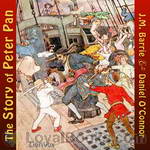 The Story of Peter Pan
The Story of Peter Pan
THE STORY OF PETER PAN RETOLD FROM THE FAIRY PLAY BY SIR J.M. BARRIE BY DANIEL O'CONNOR. Basically, Daniel O'Connor took the story from the original play, with the approval of Barrie, and shortened it into a book with music and beautiful illustrations. This shorter book was published before Barrie wrote the longer novel using the same plot and characters. | |
 Peter and Wendy
Peter and Wendy
Peter and Wendy tells the classic story of Peter Pan, a mischievous little boy who can fly, and his adventures on the island of Neverland with Wendy and her brothers, the fairy Tinker Bell, the Lost Boys, the Indian princess Tiger Lily, and the pirate Captain Hook. (Introduction modified from Wikipedia) | |
 Little White Bird
Little White Bird
"A children's book, sharp social commentary and sad psychological thriller about a man's search for a sense of belonging. All in one amazing and lyrical collection. This is the first book in which Peter Pan starts to appear. His adventure in Kensington Gardens are first narrated here. Other than that, it offers a magical portrait of contemporary London, and a realistic tale of a family to which every one of us could have belonged." | |
By: J. W. (John William) Fortescue (1859-1933) | |
|---|---|
 The Drummer's Coat
The Drummer's Coat
| |
By: J. W. Keyworth | |
|---|---|
 The Golden Shoemaker or 'Cobbler' Horn
The Golden Shoemaker or 'Cobbler' Horn
| |
By: J. [Compiler] Harrison | |
|---|---|
 Harrison's New Nursery Picture Book
Harrison's New Nursery Picture Book
| |
By: Jacob & Wilhelm Grimm (1785-1863; 1786-1859) | |
|---|---|
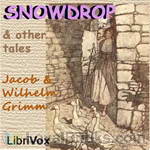 Snowdrop and Other Tales
Snowdrop and Other Tales
Many of these tales were published in English in 1909, the Brothers Grimm tales in this book were published separately in 1920 with illustrations by Arthur Rackham (1867-1939). | |
By: Jacob Abbott | |
|---|---|
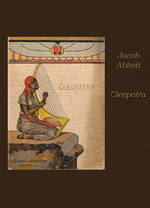 Cleopatra
Cleopatra
The French mathematician and philosopher, Blaise Pascal once remarked, “Cleopatra's nose. Had it been shorter, the whole face of the world would have been changed!” Such was the legendary power and attraction of this most famous woman ruler that generations of artists, readers, writers, historians and poets have ensured that she remains immortal and unforgettable. Jacob Abbott's Cleopatra is a work of historical biography, told in a highly dramatic and gripping style. It brings the characters and the circumstances to vivid life, making it an entertaining read for people of all ages... | |
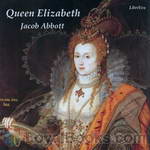 Queen Elizabeth
Queen Elizabeth
The history of a woman who rose above and beyond tragedy, grief and personal loss to become one of the most powerful figures in sixteenth century Europe is wonderfully told in this biography Queen Elizabeth, by Jacob Abbott. Beginning with the tragic circumstances of Elizabeth's mother, the lovely and doomed Anne Boleyn's execution and Henry VIII's dissolution of the English Catholic Church, the story of Elizabeth's rise to power is reflective of the England's domination of world politics as well... | |
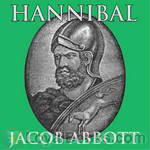 Hannibal
Hannibal
There are certain names which are familiar, as names, to all mankind; and every person who seeks for any degree of mental cultivation, feels desirous of informing himself of the leading outlines of their history, that he may know, in brief, what it was in their characters or their doings which has given them so widely-extended a fame. Consequently, great historical names alone are selected; and it has been the writer's aim to present the prominent and leading traits in their characters, and all the important events in their lives, in a bold and free manner, and yet in the plain and simple language which is so obviously required in works which aim at permanent and practical usefulness... | |
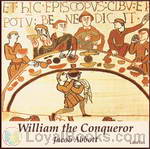 William the Conqueror
William the Conqueror
There are certain names which are familiar, as names, to all mankind; and every person who seeks for any degree of mental cultivation, feels desirous of informing himself of the leading outlines of their history, that he may know, in brief, what it was in their characters or their doings which has given them so widely-extended a fame. Consequently, great historical names alone are selected; and it has been the writer’s aim to present the prominent and leading traits in their characters, and all the important events in their lives, in a bold and free manner, and yet in the plain and simple language which is so obviously required in works which aim at permanent and practical usefulness... | |
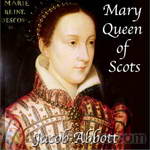 Mary Queen of Scots
Mary Queen of Scots
There are certain names which are familiar, as names, to all mankind; and every person who seeks for any degree of mental cultivation, feels desirous of informing himself of the leading outlines of their history, that he may know, in brief, what it was in their characters or their doings which has given them so widely-extended a fame. Consequently, great historical names alone are selected; and it has been the writer’s aim to present the prominent and leading traits in their characters, and all the important events in their lives, in a bold and free manner, and yet in the plain and simple language which is so obviously required in works which aim at permanent and practical usefulness... | |
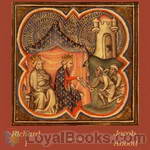 Richard I
Richard I
There are certain names which are familiar, as names, to all mankind; and every person who seeks for any degree of mental cultivation, feels desirous of informing himself of the leading outlines of their history, that he may know, in brief, what it was in their characters or their doings which has given them so widely-extended a fame. Consequently, great historical names alone are selected; and it has been the writer’s aim to present the prominent and leading traits in their characters, and all the important events in their lives, in a bold and free manner, and yet in the plain and simple language which is so obviously required in works which aim at permanent and practical usefulness... | |
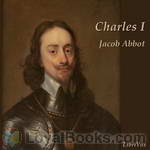 Charles I
Charles I
There are certain names which are familiar, as names, to all mankind; and every person who seeks for any degree of mental cultivation, feels desirous of informing himself of the leading outlines of their history, that he may know, in brief, what it was in their characters or their doings which has given them so widely-extended a fame. Consequently, great historical names alone are selected; and it has been the writer’s aim to present the prominent and leading traits in their characters, and all the important events in their lives, in a bold and free manner, and yet in the plain and simple language which is so obviously required in works which aim at permanent and practical usefulness... | |
 Georgie
Georgie
| |
 Rollo at Work
Rollo at Work
| |
 Rollo in the Woods
Rollo in the Woods
| |
By: Jacob Grimm (1785-1863), Wilhelm Grimm (1786-1859), and Andrew Lang (1844-1912) (1785-1863) | |
|---|---|
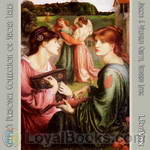 Personal Collection of Short Tales compiled by Carmie
Personal Collection of Short Tales compiled by Carmie
This is a selection of the fairy tales (in English) written by Jacob Ludwig Carl Grimm and Wilhelm Karl Grimm in the early 19th Century. These stories are fantastical and although aimed squarely at the flexible mind of a child which can assimilate much stranger concepts than an adult they are quite dark and occasionally brutal. The stakes can be quite high as in Rumpelstiltskin where a terrible bargain is made without due regard to possible future consequences and Tom Thumb who seems forever about to be imprisoned or sliced in two... | |
By: James Baikie | |
|---|---|
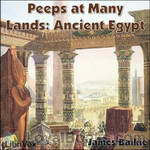 Peeps at Many Lands: Ancient Egypt
Peeps at Many Lands: Ancient Egypt
Written primarily for children, James Baikie’s ‘peep’ at ancient Egypt is a really well done, historical account of the ways of that fascinating land so many years ago. It has stood well the test of time, being both well researched and well written. It’s a fun book for everyone, and families especially will enjoy listening together. | |
By: James Baldwin (1841-1925) | |
|---|---|
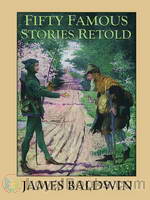 Fifty Famous Stories Retold
Fifty Famous Stories Retold
King Alfred and the Cakes. Damon and Pythias. The Sword of Damocles. Bruce and the Spider. These are stories that many people who grew up in the last century would be familiar with. They were included in our text books or to be found in anthologies in our school libraries. However, for a new generation growing up, some of these may be new and unknown. Hence, Fifty Famous Stories Retold by James Baldwin would indeed be a great addition to your children's bookshelf. James Baldwin, who shares his name with another famous American author was an editor, author and gifted teacher... | |
 Four Great Americans: Washington, Franklin, Webster, Lincoln. A Book for Young Americans
Four Great Americans: Washington, Franklin, Webster, Lincoln. A Book for Young Americans
Written for children, James Baldwin’s history of Washington, Franklin, Webster, and Lincoln brings these men to life in a way that will be interesting for adults as well. The stories touch on the little humanities of the great men, rather than dwelling on the great works and great events of their lifetimes, without ignoring the latter. | |
 Stories of Don Quixote : written anew for young people
Stories of Don Quixote : written anew for young people
The romance entitled "The Achievements of the Ingenious Gentleman, Don Quixote de la Mancha," was originally written in Spanish by Miguel de Cervantes Saavedra in the 17th century. It has been read and enjoyed by men and women of the most diverse tastes and conditions. The story is so simple that every one can understand it, and yet it has in it so much wisdom that the wisest may derive pleasure from it. It touches the sense of humor in every heart. It moves to pity rather than ridicule, and to tears as well as laughter... | |
By: James Hosmer Penniman (1860-1931) | |
|---|---|
 Children and Their Books
Children and Their Books
| |
By: James Janeway (1636?-1674) | |
|---|---|
 Stories of Boys and Girls Who Loved the Saviour A Token for Children
Stories of Boys and Girls Who Loved the Saviour A Token for Children
| |
By: James Otis (1848-1912) | |
|---|---|
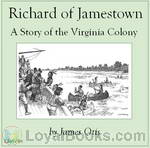 Richard of Jamestown: A Story of the Virginia Colony
Richard of Jamestown: A Story of the Virginia Colony
Richard of Jamestown by James Otis was written for children with the purpose to show them the daily home life of the Virginia colonists. It is written from the viewpoint of a young boy named Richard Mutton. | |
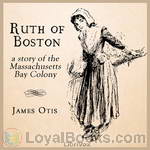 Ruth of Boston: A Story of the Massachusetts Bay Colony
Ruth of Boston: A Story of the Massachusetts Bay Colony
James Otis wrote a series of books depicting life in the new colonies, written from a child’s point of view. Ruth of Boston is the story of 12 year old Ruth, coming from London to live in the Massachusetts Bay Colony. It gives accounts of what a girl’s daily life might have been like during the beginnings of this colony. | |
 Toby Tyler or Ten Weeks with a Circus
Toby Tyler or Ten Weeks with a Circus
Toby Tyler tells the story of a ten year-old orphan who runs away from a foster home to join the traveling circus only to discover his new employer is a cruel taskmaster. The difference between the romance of the circus from the outside and the reality as seen from the inside is graphically depicted. Toby's friend, Mr. Stubbs the chimpanzee, reinforces the consequences of what happens when one follows one's natural instincts rather than one's intellect and conscience, a central theme of the novel. | |
By: James Parton (1822-1891) | |
|---|---|
 Captains of Industry
Captains of Industry
In this volume are presented examples of men who shed lustre upon ordinary pursuits, either by the superior manner in which they exercised them or by the noble use they made of the leisure which success in them usually gives. Such men are the nobility of republics.Most of these chapters were published originally in "The Ledger" of New York, and a few of them in "The Youths' Companion" of Boston, the largest two circulations in the country. I have occasionally had reason to think that they were of some service to young readers, and I may add that they represent more labor and research than would be naturally supposed from their brevity... | |
By: James Patrick | |
|---|---|
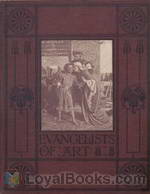 Evangelists of Art Picture-Sermons for Children
Evangelists of Art Picture-Sermons for Children
| |
By: James Whitcomb Riley (1849-1916) | |
|---|---|
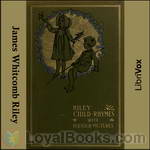 Selected Riley Child-Rhymes
Selected Riley Child-Rhymes
Riley was an American writer known as the “Hoosier poet”, and made a start writing newspaper verse in Hoosier dialect for the Indianapolis Journal in 1875. His favorite authors were Burns and Dickens. This collection of poems is a romanticized and mostly boy-centered paean to a 19th century rural American owning-class childhood. I’ve included the pieces I did because they’re the ones I most enjoyed when I read a copy of the collection handed down from my great-grandfather. | |